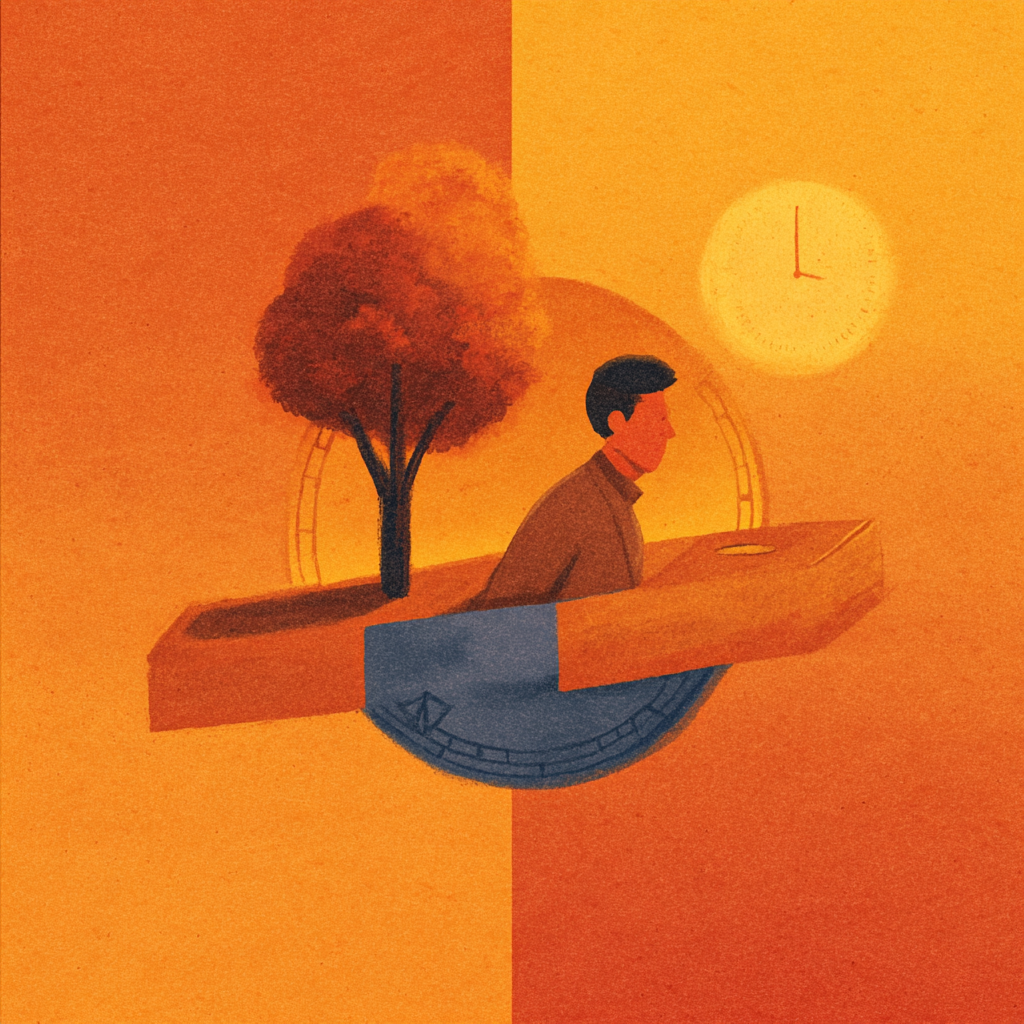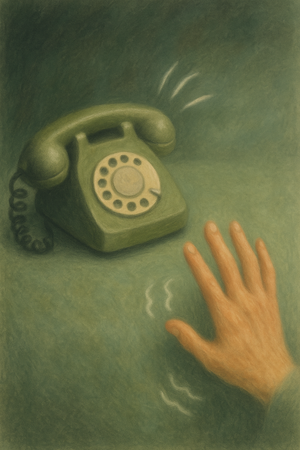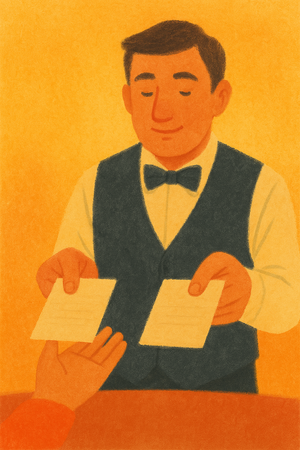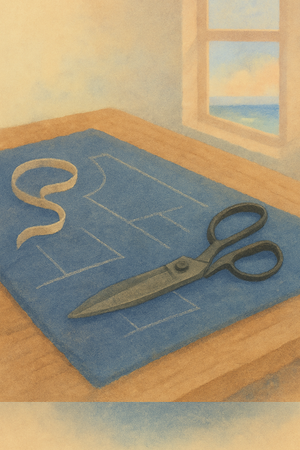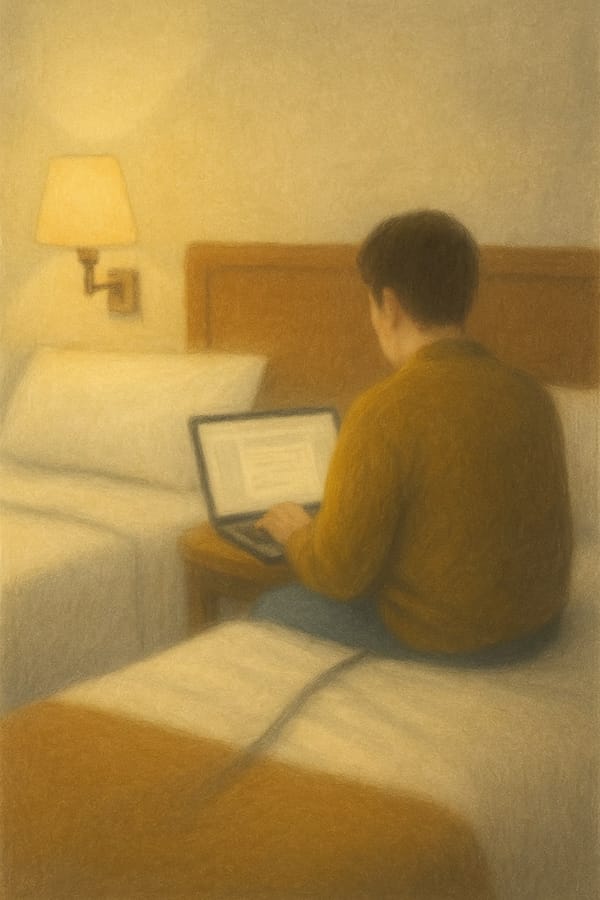The clocks go back this Sunday. Which means it'll be dark at half four, my body clock will be confused about when lunch is, and I'll have that slightly disoriented feeling of time having shifted without my permission.
I quite like it, actually. Not the dark bit - that's objectively grim - but the ritual of it. The twice-yearly reminder that time's a bit arbitrary and things change whether you're ready or not.
It got me thinking again about rhythms in freelancing. Not the calendar kind (though those matter too) but the way work has its own cycles that you can't really control. Busy periods and quiet ones. Times when everything's firing and times when you're mainly trying to stay afloat.
"You're overthinking a time change," says the dog.
Fair point. But stay with me.
From seasons to modes
I used to think about freelance work in terms of seasons. This idea that it comes in natural cycles, like planting and harvesting, growth and rest. A helpful metaphor for a while.
But the more I sat with it, the more I realised it suggested something too regular. Too predictable. Like you could just wait for autumn to arrive and know what to expect.
That hasn't been my experience. And I don't think it's most people's either.
These days, I think less about seasons and more about modes. Modes aren't seasonal. They don't follow a pattern or arrive on schedule. Some last a few months. Others a few weeks. Some give you time to prepare. Others show up overnight because a project ended early or a client's budget got pulled or life happened in some unexpected way.
The shift feels small - seasons to modes - but it's changed how I think about planning. Or not planning, really. More like... adjusting.
The four modes
Here's what I mean by modes. Over the years, I've noticed I tend to move between four distinct ways of working. Not by choice, always, but by necessity. By energy levels, by what's available, by what life's asking of me at any given moment.
Energy Recovery Mode is when I'm tired or life's demanding more than usual. I don't stop working - can't really afford to - but I simplify. Fewer meetings, part-time hours if I can swing it, lighter-touch projects with people I've worked with before. Familiar territory. The goal isn't to excel or push boundaries, it's just to keep going while taking care of myself.
Experiment Mode is when I've got the energy and space to try something different. A project in an unfamiliar industry, a new type of client, a workshop I've never run before. These aren't always the most lucrative choices, but they stretch me in other ways. They're investments in future capability, or sometimes just interesting enough to feel worth doing.
Runway Mode is when money becomes the priority. I look for dependable work - often execution-heavy, the kind of thing I can deliver well without reinventing the wheel. The goal is to build financial headroom so that future decisions aren't made under pressure. So I can say no to things, or yes to things that don't pay immediately, or just breathe without checking my bank balance every other day.
Build Mode is when I want to make something of my own. A course, a workshop series, a shift in how I position myself. It takes clarity and energy, which is why I usually need a spell in runway mode first. But it's often where the most meaningful changes happen. The things that actually move the practice forward rather than just keeping it running.
They're not optional
The thing about modes is they're not optional. You can't just decide to be in experiment mode if you're actually exhausted and need to be in recovery mode. You can't build something meaningful if you're constantly worried about money and should probably be in runway mode first.
Well, you can. I've tried. It just doesn't work very well.
What works better - or what works better for me, anyway - is being honest about which mode I'm actually in, and making choices that fit that reality rather than fighting it.
Sometimes that means taking work I wouldn't normally take because I need the financial security. Sometimes it means turning down well-paid work because I'm too tired to do it justice. Sometimes it means saying yes to something weird and experimental because I've got the space and energy to try it.
The hard part isn't the choosing. It's the noticing. Learning to recognise the signs that I'm shifting from one mode into another, ideally before I've committed to something that doesn't fit.
What doesn't work (for me)
I tried the other approach for a while. The "go hard for a few months, then take a proper break" model. Some people do really well with that. It's a valid rhythm. Feast or famine, all in or all out.
But for me, I found it harder to recover than I expected. I'd get to the break and realise I was too flat to enjoy it, or that I'd left too many things unattended. The admin would pile up. The relationships would go cold. The ideas would dry up because I'd been too busy executing to have any thoughts.
And then coming back felt like starting from scratch each time. Which maybe it was, a bit.
What feels more sustainable (at least for how my brain works) is learning to switch modes deliberately and more often. Smaller adjustments, more frequent recalibrations. Instead of one big break after months of intensity, a few weeks of recovery mode sprinkled throughout. Instead of saving all the experimental work for a dedicated period, taking one interesting project alongside the steadier stuff.
It's less dramatic. But it's also less likely to break me.
Just adjust
The clocks going back feels like a good reminder of this, somehow. That time shifts, rhythms change, and fighting it doesn't help. You just adjust your schedule, turn the lamps on earlier, maybe go to bed at a slightly weird time for a few days until your body catches up.
Freelancing's a bit like that. You can't control when the work comes or doesn't come, when your energy's high or when it's not, when life decides to be complicated or when it's mercifully simple. You can only really control how you respond to it.
Which sounds very wise and sorted, written down like that. In practice it's messier. Sometimes I get it wrong. Take on too much when I should be resting, or rest when I should be building runway, or try to experiment when I'm too skint to take the risk.
But more often now - and this has taken years, not months - I can feel when a mode is shifting. When the work I've been doing no longer fits where I am. When I need to stop looking for exciting projects and focus on reliable ones for a bit. Or when I've been in runway mode too long and need something that reminds me why I'm doing this in the first place.
What I wish I'd known earlier
If you're reading this and you're just starting out, or you're a few years in and it still feels chaotic, here's what I wish someone had told me earlier:
You don't have to be in growth mode all the time. In fact, you probably can't be, not sustainably. There's nothing wrong with collecting steady work for a few months if you know you want to build something after. There's nothing wrong with pulling back if things feel too intense, or saying no to opportunities that would've been perfect six months ago but don't fit where you are now.
What matters is learning to notice the shift. To pay attention to where your energy actually is, not where you think it should be. And then adjusting before the work stops fitting.
Sometimes that means looking a few weeks ahead and asking: What does my diary look like? Where is my energy now, and where is it likely to be soon? Am I heading into something heavy, or coming out of it? Am I financially topped up, or have I drifted too far from what I need to feel secure?
It's not a perfect system. Sometimes, even when I know which mode I need to be in, I can't find the work that fits. But when I do have options, being honest with myself helps me make better choices.
And sometimes the best choice is just turning the lamps on earlier and accepting that it's a different season now.
Right. The evenings are about to get dark and there's nothing to be done about it except light some candles and get on with things.
See you next time.
— Tom
P.S. A few of you got in touch about my offer to set up an informal Mildly Independent online get-together. A chance to meet each other, have a bit of a Q&A, that sort of thing. I'm going to make it happen, probably next month. Keep an eye out for details. Would love to see a bunch of you there.

